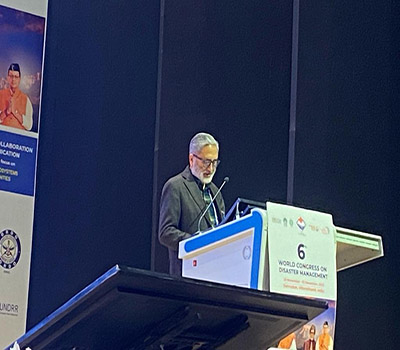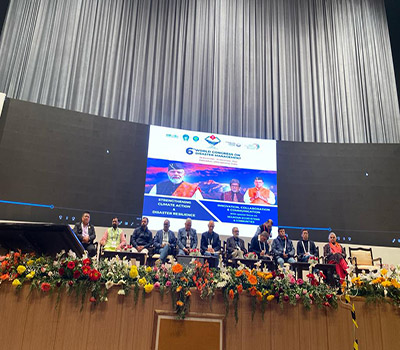DEHRADUN: The experts and "voices from the grassroots" have made a clarion call for the eight-fold mountain-specific policy initiative for Himalayan states including Uttarakhand, an eco-sensitive mountain region which is being battered frequently by a series of natural and man-made disasters over the decades.
They came on board here and batted for the mountain-specific policy at the 6th World Congress on Disaster Management at Graphic Era University, Dehradun organised by the Integrated Mountain Initiative(IMI), a civil society group active in the Indian Himalaya.
IMI President Ramesh Negi said technical session brought together diverse stakeholders, including local communities, development practitioners, scientists, and non-governmental organizations, to discuss issues related to the sustainable development of the Indian Himalayan region.
The session highlighted the increasing frequency of disasters affecting the entire Himalayan landscape, causing significant loss of life, economic challenges, human displacement, and damage to mountain ecosystems.
The experts emphasized the importance of traditional practices and local knowledge, showcasing the inherent resilience of local communities and institutions in the face of disasters.
Key Recommendations from the Session:
- Develop a specific policy for the Indian Himalayan Region through multi-stakeholder consultation, integrating landscape needs, traditional knowledge, and scientific expertise.
- Implement an Integrated Landscape Approach for disaster management, incorporating risk assessment, participatory management of non-climatic aspects, and leveraging modern technology.
- Enhance capacity building for disaster risk reduction by considering the perspectives of local communities and stakeholders, focusing on awareness, preparedness, and response capabilities.
- Strengthen networking and mutual exchange among stakeholders, including local institutions and community representatives, to collate best practices and ensure wider data accessibility.
- Adopt cost-effective Nature-based solutions, emphasizing sustainable use of natural systems for prevention and proactive response to disaster risks.
- Improve early warning systems using technology and community-based communication channels for timely and effective alerts.
- Foster collaborations between government agencies, NGOs, and local communities for a comprehensive and coordinated approach to disaster management.
- Mobilize financing for applied research and innovations, encouraging ongoing efforts to identify nature-based solutions and improve the effectiveness of scientific inputs under changing conditions.
IMI Governing Council members, led by President Mr. Ramesh Negi, anchored the session, with Dr. Gopal Singh Rawat facilitating and Dr. Rajan Kotru delivering the keynote.
Key contributions came from Dr. Jigmet Takpa (IMI) and Dr. Arun Shrestha (ICIMOD), contributing to the successful outcome of the session.









